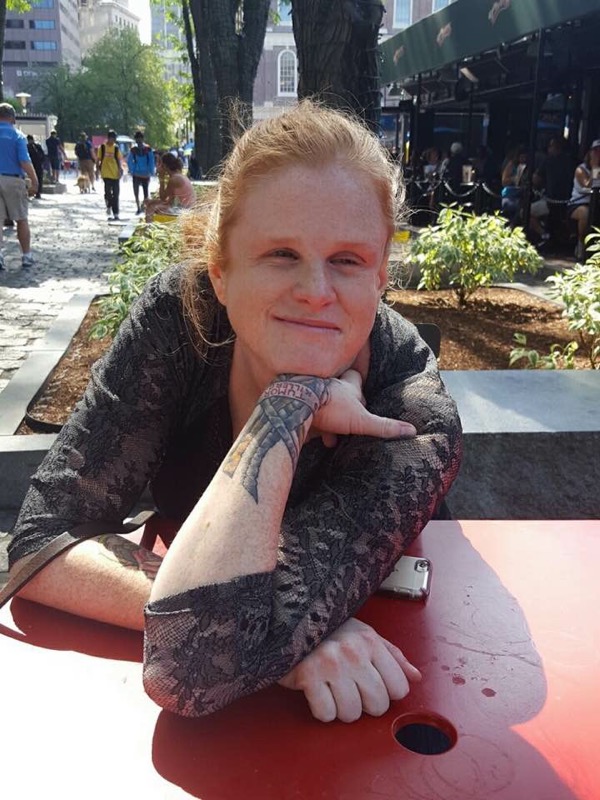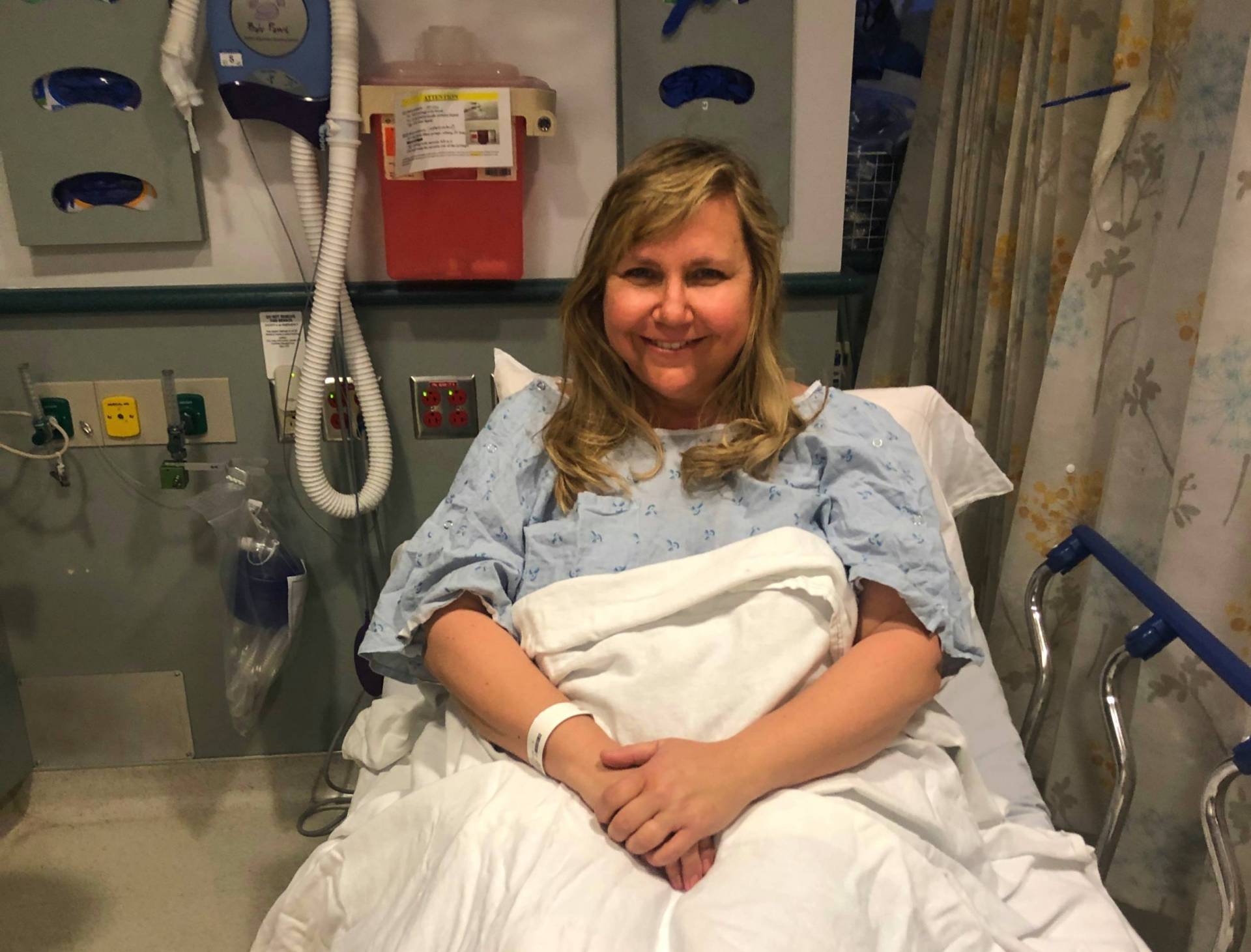Thousands of Bay Area Patients Wait for Surgery as Hospitals Hold Beds for Coronavirus Surge
Description
 <figcaption class="wp-caption-text">Sassy Outwater-Wright has battled cancer her entire life. She lost her sight to the disease. (Miriam Cooper)</figcaption></figure>
<figcaption class="wp-caption-text">Sassy Outwater-Wright has battled cancer her entire life. She lost her sight to the disease. (Miriam Cooper)</figcaption></figure>When COVID-19 started rapidly spreading, hospitals throughout the country canceled elective surgeries to free up hospital beds and conserve protective equipment like masks and gowns. Surgery departments canceled everything from cosmetic procedures like tummy tucks and gastric bypasses to brain surgeries and organ transplants. In the Bay Area, all in-person care is delayed for all but the most worrisome cases.
“We shut down the O.R. almost lock, stock and barrel,” said Dr. Philip Theodosopoulos, a UCSF neurosurgeon.
In mid-March, he says, nearly 2,000 procedures at UCSF medical center were canceled in order to prepare for a surge of COVID patients.
“These include cancer, aneurysms; include things that cause ischemia to the brain and to the body. This is not just brain surgery. This is all surgery.”
Seriously Ill Patients Weigh the Risks
Sassy Outwater-Wright is one patient who has had to wait. A rare cancer, called retinoblastoma, attacked her eyesight when she was a baby, causing her to lose her vision. Today the Berkeley resident runs an advocacy organization for the blind and visually impaired. She goes to the doctor a lot.
“We’ve kind of been playing whack-a-mole with tumors for the past 12 years,” said Outwater-Wright, a tall, 37-year-old redhead. “They get one; the other one starts growing. The other one needs attention; they get that one.”
There’s another tumor in her head right now. She was scheduled to have it removed, until her doctors determined it wasn’t safe to open her skull during a pandemic. Outwater-Wright was told the infection risk was too high.
The procedure is on hold. Her tumor isn’t. She lies awake at night, weighing the risks.
“The threat to my life from a tumor that’s sitting in my head versus the threat from a virus that’s loose in a hospital,” she said. “And nobody can weigh those odds.”
Outwater-Wright is one of many critically ill patients sidelined but not sickened by COVID-19. Rosemary Pathy-McKinney is also waiting for brain surgery. She started feeling a lot of pressure in her head around New Year’s. Then the right side of her face started to occasionally feel numb and tingle. Her glasses were no longer strong enough.
In February, Pathy-McKinney visited an urgent care clinic in San Jose, where doctors discovered two brain tumors. Suddenly the second-grade school teacher and mother of two was fighting a grave illness at the same time COVID was spreading around her.
The first available slot for brain surgery was a month later, in mid- March. Pathy-McKinney stayed cloistered in her home while she counted down the days to her operation because she couldn’t afford to become infected.
“I’m compromised medically, right with what’s going on with me,” she said. “It worries me.”
The day before her surgery, Pathy-McKinney drove to San Francisco for a preoperative MRI at UCSF medical center. Doctors shaved her head and marked future incisions in blue. She lay perfectly still while a radiologist peered inside her skull to determine where to cut. She breathed a huge sigh of relief an hour later when they slid her out of the cramped enclosure.
But just as she was walking out to the waiting room, she learned that her surgery the next day was canceled until further notice.
“Can she wait more than a month?” questions Dr. Theodosopoulos, Pathy-McKinney’s neurosurgeon. “I would say, well, not without a deficit. Probably not.”
Still Waiting on the Surge
As Pathy-McKinney waited frantically at home, her head throbbed and her vision worsened. Meanwhile, the UCSF Medical Center never filled up with COVID-19 patients.
<figure id="attachment_1962130" class="wp-caption alignright" style="max-width: 1920px">
 <figcaption class="wp-caption-text">Rosemary Pathy-McKinney was diagnosed with two brain tumors in February just as the coronavirus was starting to spread in the Bay Area. (Rick McKinney)</figcaption></figure>
<figcaption class="wp-caption-text">Rosemary Pathy-McKinney was diagnosed with two brain tumors in February just as the coronavirus was starting to spread in the Bay Area. (Rick McKinney)</figcaption></figure>“We’re pretty much at a standstill, truly,” said Dr. Theodosopoulos.
Two hundred hospital beds sit empty at UCSF, and that has raised an ethical question.
“There are a lot of diagnoses that we don’t really know how long we can wait,” Theodosopoulos said.
That’s why just this week UCSF rescheduled a few surgeries for the most urgent cases. Fortunately Pathy-McKinney was one of them. A nurse sent her husband a text after the procedure, saying all went well. The hospital is not allowing any visitors right now.
Sassy Outwater-Wright also received encouraging news this week from her medical team. She has an appointment on Friday to determine whether it’s safe to operate.
Others will have to wait, as large medical facilities like Stanford Health and Kaiser Permanente have yet to start rescheduling elective surgical procedures.
Dr. Theodosopoulos of UCSF estimates it will take about six months for the surgery department to catch up on all the procedures that were put on hold. That’s assuming another wave of COVID-19 cases don’t emerge and create a further backlog.





